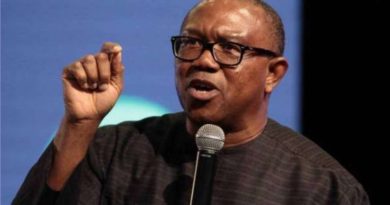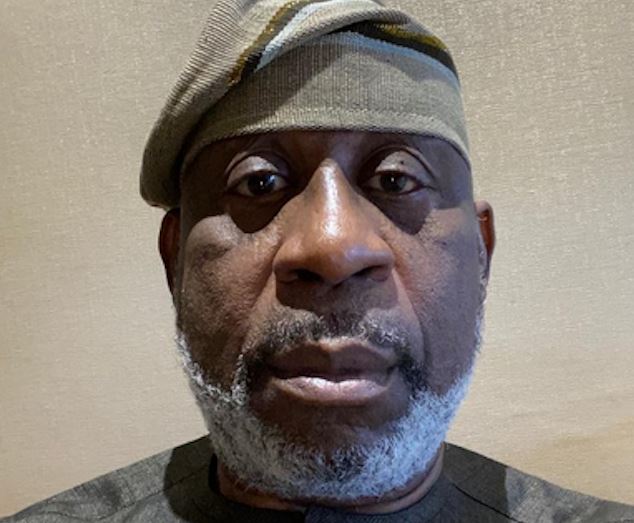2023, NGIGE, ASUU AND THE LIMITS OF FALSEHOOD
Chekwube Chukwunyere argues that Ngige has what it takes to steer the nation out of crisis
As an active labour activist, I have read with dismay the sustained campaign of calumny against the Minister of Labour and Employment, Senator Chris Ngige since he declared his intention to contest for the office of the President of the Federal Republic of Nigeria on the platform of the ruling All Progressives Congress (APC).
After months of consultations with political stakeholders across the country, Ngige declared his intention penultimate Tuesday before a mammoth crowd of APC members and other supporters at his hometown, Alor in Idemili South local government area of Anambra State.
But, rather than look at Ngige’s enormous leadership potential, fifth columnists in the traditional and social media are taking advantage of the ongoing strike of the Academic Staff Union of Universities (ASUU) to undermine this noble ambition. For instance, less than 24 hours after his declaration, an Abuja based national newspaper came out with a headline that “Ngige’s presidential ambition is dead on arrival.” The report did not emanate from any authoritative or credible source but a handful of posts on the social media, insinuating that if Ngige could not resolve the ASUU strike, then he was incapable of vying for the president of Nigeria.
As somebody conversant with developments in the labour sector, such conclusion above is both irrational and infantile and must have been borne out of either crass ignorance or malice. Without any fear of contradiction, let me say that the problem with most critics in Nigeria is that they don’t have foresight and yet, adamantly refuse to make use of hindsight.
If Ngige’s hecklers had engaged in a little retrospection, it would have occurred to them that the ASUU crisis in Nigerian public universities predated his first appointment in 2015 as the Minister of Labour and Employment. In fact, incessant ASUU strikes dated back to the era of the military in Nigerian politics. Between 1988 and 1996, university lecturers embarked on five nationwide strikes to protest one thing or the other.
After the return of democracy in Nigeria in 1999, ASUU became more restive. Between 1999 and 2022, the union embarked on strike 16 times (the ongoing strike inclusive). Out of the 16 ASUU strikes, seven occurred under the presidency of Chief Olusegun Obasanjo, five occurred under Umaru Musa Yar’Adua and Goodluck Jonathan and the remaining four took place under the current administration of President Muhammadu Buhari. These facts are out there for everyone to see.
Two years after President Buhari assumed office, ASUU embarked on strike in 2017. Ngige rose to the occasion and quickly truncated the industrial action in one month. ASUU later embarked on three months strike in 2018 and a record nine months strike in 2020. The ongoing strike has so far lasted more than two months. It is important to point out that all the issues in dispute emanated from agreements signed between the union and previous governments, some dating back to 2009.
The disputed issues included the Revitalization Funds, Earned Academic Allowances/ Earned Allowances, Renegotiation of the 2009 agreement on conditions of service of university workers, appointment of visitation panels to the universities, the payment platform for paying university lecturers between the Integrated Personnel Payroll Information System (IPPIS) approved by the government and University Transparency Account Solution (UTAS), preferred by ASUU, as well as the proliferation of state universities.
Since coming into the picture, Ngige had never wavered in his belief in continuity of government and that agreements are bound to be kept. On the other hand, leveraging on his membership of several federal cabinet committees, which afforded him the opportunity to have an insight into the government treasury, he had equally never hesitated to make ASUU and other unions to understand the poor financial standing of the government, caused by diminishing crude oil earnings.
Following Ngige’s interventions, everything contained in the December 2020 agreement between the federal government and ASUU was religiously executed to the extent that the government aggregately paid N92b from 2021 budget to cover the revitalisation funds and Earned Allowances/Earned Allowances for non-teaching staff. The issue of visitation panels to the universities had since been buried.
Regarding the renegotiation of the conditions of service of university lecturers, Ngige has always maintained that the renegotiation must be guided by the International Labour Organisation (ILO) principle of ability to pay. Being a realist, he does not believe in giving percentages on paper that nobody can pay. In 2016-2017, the federal government appointed a committee headed by Wale Babalakin SAN, the then Pro-Chancellor of University of Lagos to renegotiate the conditions of service of university workers. Following protest by ASUU, Babalakin was replaced by Prof. Jubril Manzali.
The Manzali committee proposed 200 percent rise in emoluments of university workers, but the federal government through relevant ministries and departments, rejected the proposal because of the financial implications. The National Salaries, Incomes and Wages Commission (NSIWC) in particular said the proposal did not comply with its established template for wage increase. As it stands today, the Manzali document remains a proposal as neither ASUU nor the government side endorsed it.
When the Labour minister was approached, he saw nothing wrong with renegotiation because even after signing a Collective Bargaining Agreement (CBA), it could be renegotiated.
This was the situation when the Manzali committee elapsed. At the last meeting of the government side and ASUU, Senator Ngige reprimanded the Federal Ministry of Education for not living up to expectation. He reduced the timeline of the new renegotiation committee headed by Prof. Nimi Briggs, from three months to six weeks to ensure a speedy resolution of the matter.
Similarly, he has been up to his neck on the issue of payment platform for the lecturers, vis-à-vis IPPIS versus UTAS. Information provided by the National Information Technology Development Agency (NITDA) indicated that ASUU’s preferred platform, the UTAS passed user acceptability test, which is not surprising since the process involved only members of the union. However, UTAS failed integrity and credibility test, which every system must pass to ensure that it is hack proof.
ASUU rejected the outcome of the test. While the matter was being discussed, the union embarked on strike. Ngige has been appealing to NITDA to bend backwards so that there would be a handshake between UTAS and the government approved platform. He suggested that a joint committee of ASUU and NITDA should be set up with independent IT professionals for an unbiased assessment and to resolve the contradictions between the two platforms. Today, ASUU has embraced this suggestion after going on strike.
I have gone this whole hog to make those blaming Ngige for the ASUU strike to understand that he is not the direct employer of the university lecturers. The Federal Ministry of Education is their employer. The Labour Ministry gets involved in a dispute when there is a deadlock in talks between workers and their employers, both in the public and private sector. As a conciliator, Ngige makes use of labour instruments at his disposal. He cannot dictate to the Minister of Education or any other minister for that matter.
The Labour minister feels the impact of the strike like any other average Nigerian parent. His children are in schools in Nigeria. His first son, Raphael Chunny Ngige graduated in medicine from Chukwuemeka Odumegwu Ojukwu University Teaching Hospital Awka in 2020. His daughter, Amaka Ngige as an American citizen could have accessed American education but he refused. She graduated with a medical degree from Lagos University Teaching Hospital (LUTH) in October 2021. In December, his son, Andrew Ngige graduated from the UniAbuja College of Medicine. His other children, including those on the scholarship and sponsorship of his foundation, Sen. Chris Ngige Foundation are still there in Nigerian universities.
In conclusion, I want to say that Ngige is one of the most qualified persons in Nigeria today for the post of president, given his antecedents as Governor of Anambra State for just 34 months, Senator of the Federal Republic of Nigeria for four years and Minister for the past seven years in charge of a Ministry as difficult as Labour. Since assumption of office in 2015, he has successfully conciliated 1683 labour disputes, including the ones involving the Nigeria Association of Resident Doctors (NARD) and the Joint Health Sector Unions (JOHESU). A few months ago, he averted what could have been a total shutdown of the Nigerian airspace by aggrieved workers in the aviation sector. There is no doubt that he has what it takes to transform Nigeria, including the administrative competence, huge wealth of experience in governance, capacity and energy.
He did not just join the race but was pressurised into doing so by several support groups who believe in his ability to steer Nigeria into greatness once again. Goons who think that they can use the ASUU strike to bring down his ambition should know that they have failed. Ngige knows Nigerians and Nigerians know him.
Chukwunyere writes from Abuja



